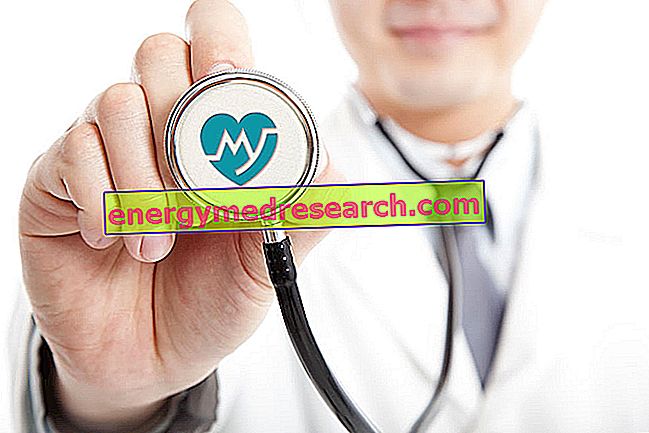TIRACRIN ® a drug based on levothyroxine sodium
THERAPEUTIC GROUP: Thyroid preparations
IndicationsAction mechanismStudies and clinical effectiveness Usage and dosage instructionsWarnings Pregnancy and lactationInteractionsContraindicationsUndesirable effects

Indications TIRACRIN ® Levothyroxine
TIRACRIN ® is used in cases of hypothyroidism, non-toxic diffuse goiter, Hashimoto's thyroiditis and other inflammatory diseases affecting the thyroid.
Mechanism of action TIRACRIN ® Levothyroxine
TIRACRIN ® is a drug based on levothyroxine, a levorotatory isomer of thyroxine, an iodinated amino acid incorporated in a glycoprotein known as thyroglobulin.
This hormone produced by the follicular cells of the thyroid, is normally synthesized and accumulated in the thyroid follicles to be released into the circulation, when necessary, following the stimulation induced by the pituitary hormone TSH.
Levothyroxine together with triiodothyronine, acts at the peripheral level, controlling the activity of various organs and tissues and significantly affecting body growth, thermogenesis, cardiovascular activity, nervous system activity and metabolism in general.
The conditions of hypothyroidism, characterized by a reduction in the production of these hormones, are therefore accompanied by a significant reduction in the metabolic capacities and a deterioration of the normal organic activities, which significantly affect the patient's state of health.
In these cases, excluding other secondary pathologies, it becomes fundamental for the protection of human health, the replacement therapy with levothyroxine.
This drug taken orally, rapidly reaches the gastro-intestinal environment, where it is absorbed in extremely variable quantities from individual to individual, and linked to specific plasma proteins transported to peripheral tissues.
The metabolism, mainly of hepatic origin, allows the elimination of the active ingredient glucoronate through the faeces.
Studies carried out and clinical efficacy
1. LEVOTIROXINE AND CARDIOVASCULAR RISK FACTORS
The treatment of subclinical hypothyroidism with levothyroxine has proved particularly useful in reducing some risk factors associated with the onset of cardiovascular diseases. This study reaffirms the central role of thyroid hormones in the control of integrated metabolism.
2. THYROID AND CHOLESTEROL FUNCTIONALITY
It is known how thyroid hormones can regulate lipid metabolism and in particular that of cholesterol. This study shows that patients with reduced thyroid function present an increased level of circulating LDL cholesterol, and how this can represent a potential risk factor for the development of cardiovascular diseases. The data obtained from this work suggest the need for a screening of lipidemic concentrations in patients with frank or subclinical hypothyroidism.
3. HYPERTHROIDISM AND BONE HEALTH
It is known from clinical and experimental experience that increased thyroid function or thyrotoxicosis induced by high concentrations of thyroid hormone drugs can obviously be associated with bone damage characterized by excessive resorption in the face of mild deposition. This aspect becomes particularly important for menopausal women undergoing replacement therapy and for all those who abuse these products.
Method of use and dosage
TIRACRIN ® 100 mcg levothyroxine sodium tablets:
although application ranges have been defined, ranging between 50 and 200 mcg per day in adults, the specific dosage varies considerably from patient to patient depending on the physiopathological conditions, the clinical picture and the related therapeutic goals.
It is therefore of fundamental importance that the dosage is established by your doctor after a careful clinical evaluation of the patient's state of health.
Warnings TIRACRIN ® Levothyroxine
Although drugs and products based on thyroid hormones are used without medical criteria in many fields, it should be remembered that the intake of levothyroxine is justified exclusively by medical needs due to reduced thyroid function
The abuse of these products could cause serious side effects, such as to seriously compromise the patient's state of health.
For the same reason, medical therapy should be preceded by a careful clinical evaluation, aimed at confirming the need for pharmacological treatment, and accompanied by periodic monitoring of TSH and transaminase blood concentrations, to assess the adequacy of ongoing therapy.
Some side effects due to the administration of TIRACRIN ® could reduce the patient's normal perceptive and reactive capacities, making it dangerous to use machinery and drive vehicles.
PREGNANCY AND BREASTFEEDING
Numerous studies support the good safety profile of levothyroxine, taken at therapeutic doses and under strict medical supervision, on the health of the fetus despite the fact that this active ingredient can easily pass the placental barrier and partly be secreted even in breast milk.
It is therefore of fundamental importance to manage hypothyroidism during pregnancy, given the increased demand required and the crucial role of these hormones in fetal development.
Interactions
The numerous metabolic implications, which characterize the biological activity of thyroid hormones, expose TIRACRIN ® to various possible drug interactions.
Levothyroxine can in fact alter the function of hypoglycemic drugs and coumarin derivatives, exposing the patient to possible metabolic and hemorrhagic consequences, while cholestyramine, drugs containing aluminum, iron and calcium, salicylates, dicumarol, furosemide, clofibrate, phenytoin, glucoriticoids, beta-sympatholytic drugs, amiodarone and iodinated contrast agents, estrogens, barbiturates, proguanil, antiepiliectics and compounds containing soy could alter the normal pharmacokinetic properties of TIRACRIN ® reducing its therapeutic effect.
Contraindications TIRACRIN ® Levothyroxine
TIRACRIN ® is contraindicated in case of untreated adrenal insufficiency, untreated hypophysial insufficiency, untreated thyrotoxicosis, acute myocardial infarction, acute myocarditis and pancarditis and hypersensitivity to the active ingredient or its excipients.
Undesirable effects - Side effects
Extensive clinical trials and careful post-marketing monitoring define the good safety and excellent tolerability of medical therapy with levothyroxine, when properly set.
Side effects, in some cases even serious, were instead observed following incorrect dosages or following the uncontrolled abuse of this drug.
Given the crucial role of thyroid hormones in general metabolism, the adverse reactions observed can be correlated to the classic symptomatology of hyperthyroidism characterized by arrhythmias, tachycardia, anginal pain, hypertension, cardiac failure and arrest, headache, hyperexcitability, insomnia, tremor, emotional lability, epilepsy, hair loss, widespread inflammatory reactions, alteration of adrenal function, alteration of transaminases, nausea, vomiting, cramps, abdominal pain and osteoporosis.
Note
TIRACRIN ® is salable only under medical prescription.
TIRACRIN ® is part of the doping class: Hormones and related substances (prohibited in and out of competition)



